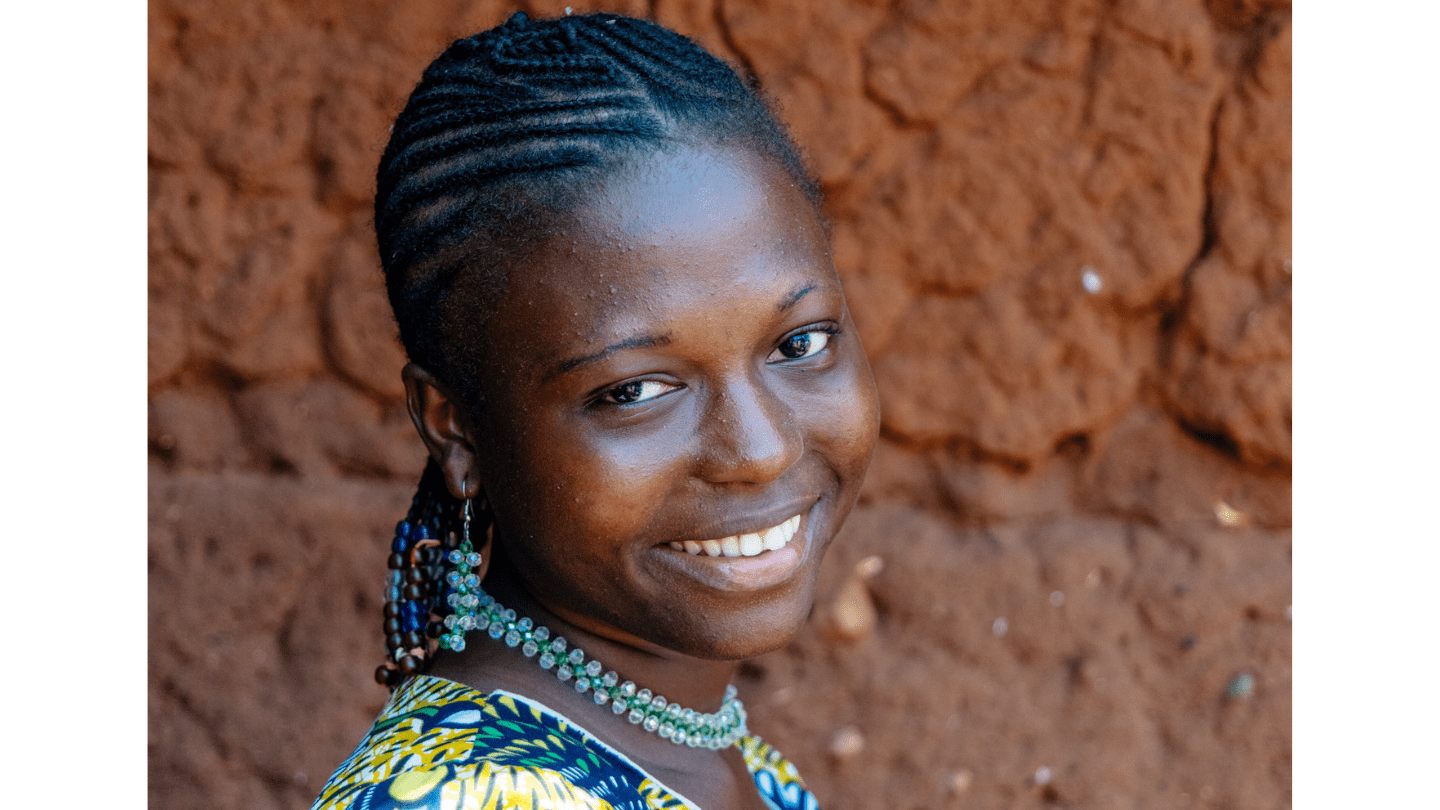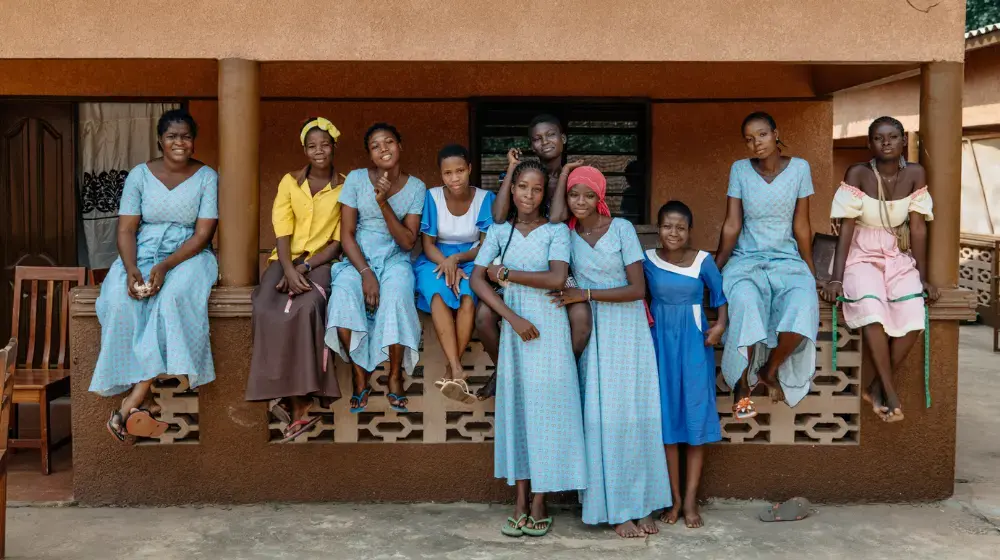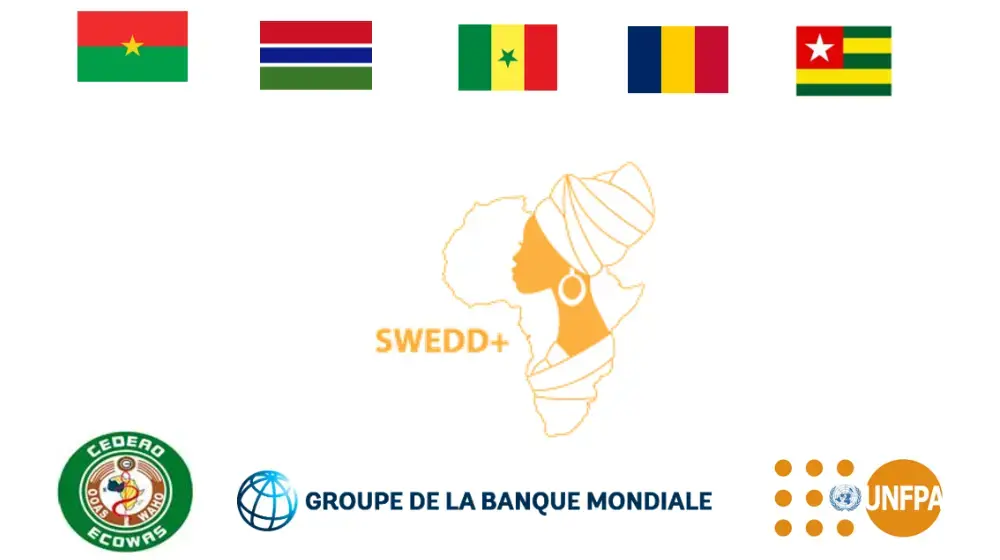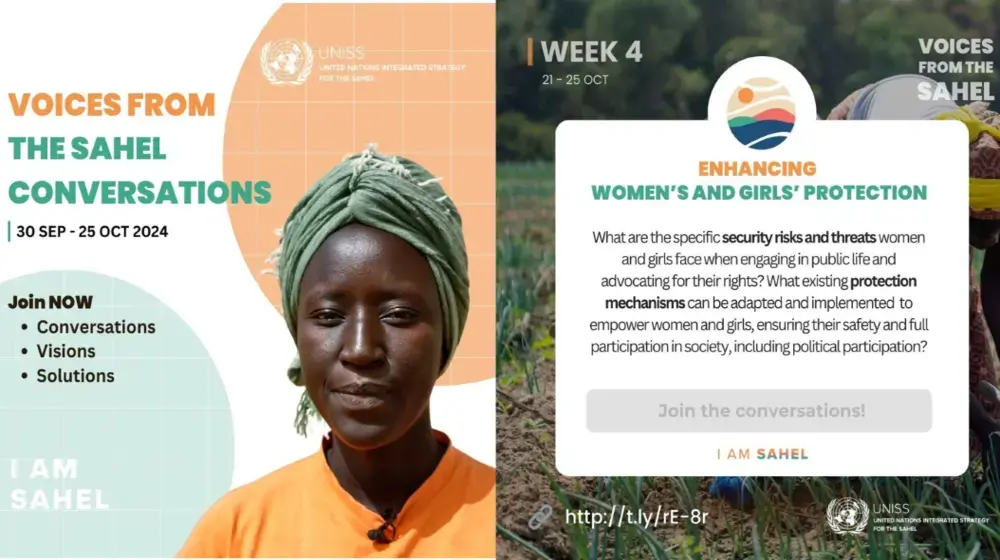Inspired by her mother’s resourcefulness, Florence Ayomo began her journey into snail farming with a simple idea: to turn a staple food into a sustainable livelihood. With support from UNFPA, under the World Bank-funded SWEDD project, she gained the skills and resources to turn that idea into reality after dropping out of school and attending a Safe Space. These ventures contribute to local economies, fostering resilience and economic growth in rural areas, and helps to establish a foundation for gender equality and long-term development in Benin.
Kpétékan, Benin - Along a bumpy red-earth road in a village in Benin's Mono region, behind a cluster of trees, lies the family home of 22-year-old Florence Ayomo. Here, thanks to a cage provided by the Sahel Women's Empowerment and Demographic Dividend (SWEDD) project — an initiative aimed at empowering young women with economic opportunities — Florence has transformed her life through snail farming.
Inspired by her mother, who would bring snails home from the fields, Florence decided to start raising them herself. “At first, I thought this was just something small we could eat,” she says. “But then I realized it could also be a way to earn money.”
Supported by her mother’s encouragement and the resources of the SWEDD project, which provided not only materials but also business training, Florence began her venture.
The SWEDD mission is to empower women and adolescents by improving access to quality health services and promoting education and economic independence. In Benin, SWEDD focuses on equipping young women with practical skills and startup support for income-generating activities through Safe Spaces. These hubs provide a secure environment where girls and young women can gain life skills, vocational training, and education on sexual and reproductive health and rights (SRHR), guided by trained female mentores.
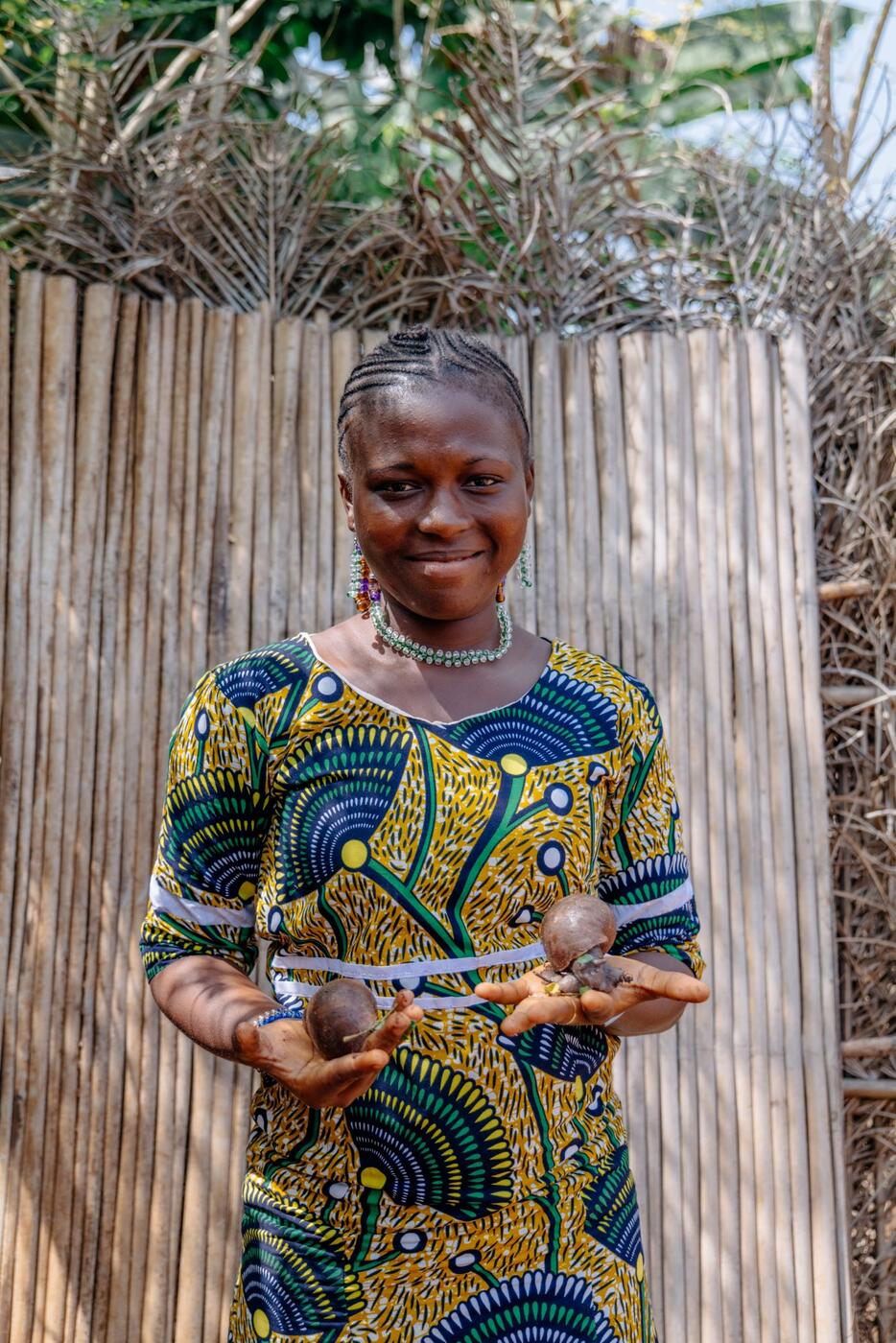
Combining economic empowerment with SRHR education is critical for breaking the cycle of poverty and reducing child marriage and early pregnancies. Financial independence enables girls to make informed life choices, support their families, and contribute to community well-being. Educating and empowering girls not only enhances gender equality but also drives national economic growth and strengthens communities.
“The SWEDD training taught me how to reinvest profits, market my business, and plan for growth,” Florence explains. “They didn’t just give us materials; they taught us how to think about the future.”
UNFPA in Benin established 789 safe spaces, 532 husbands' and future husbands' clubs, benefiting over 189,000 people, and conducted capacity-building to sustain these community interventions.
Though Florence left school in the fifth grade due to financial and academic challenges, her entrepreneurial spirit shines. “I’m not the only child in my family,” she explains. “I decided it was better to focus on something I could do well.”
Her father, who initially doubted her path, is now one of her biggest supporters, urging her to keep going. “He always tells me, ‘Don’t give up,’” Florence shares.
Overcoming challenges
Despite her enthusiasm, Florence encountered early challenges. During the rainy season, many of her snails died, leaving her disheartened. “I told my sister I wanted to quit,” Florence recalls. “But she wouldn’t let me. She said, ‘Keep trying. You’ll get there.’”
With persistence, Florence’s hard work began to pay off. Customers now travel from as far as Comé, 40 kilometres away, to buy her snails.
Florence uses social media to connect with potential buyers. “Sometimes, I get orders from people I’ve never even met,” she beams.
Pride in feeding her family
Through her income, Florence proudly supports her family, both financially and by providing a nutritious food source. Snails, a delicacy in Benin, are often prepared in stews—a dish Florence’s family now enjoys regularly.
“When I see my family eating something I raised, it makes me happy,” she says. “And when I sell snails and bring money home, I know I’m helping in another way. It’s a good feeling.”
Florence dreams of expanding her farm and inspiring other young women to follow in her footsteps. “It’s important for us women to work and support ourselves,” she says. “You can’t always rely on others. If you contribute, even a little, it makes a big difference.”
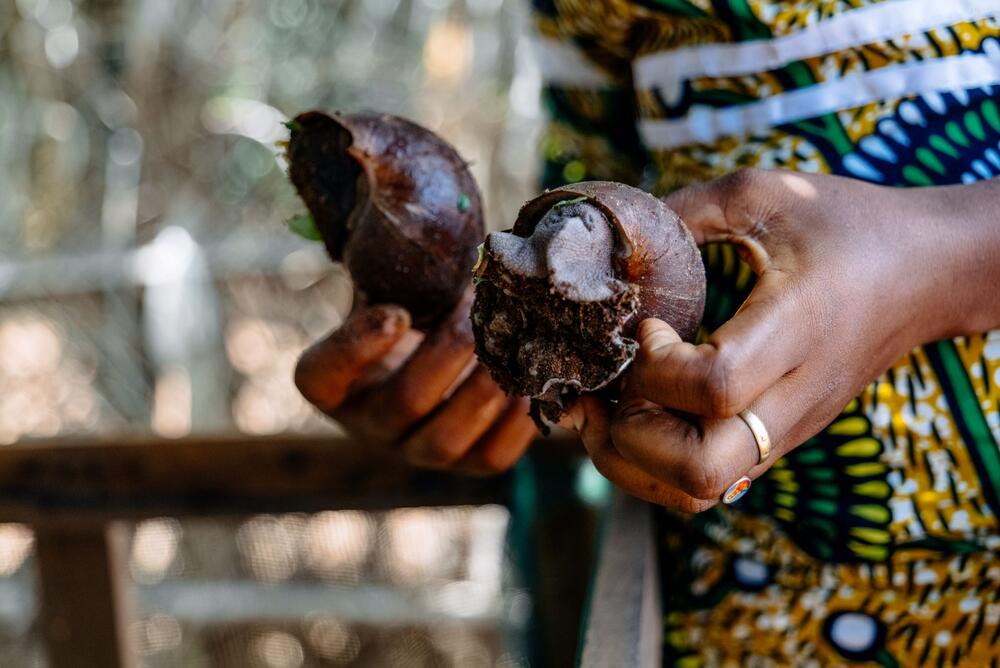
Transforming lives through the SWEDD project in Benin
As the second phase of the Sahel Women’s Empowerment and Demographic Dividend (SWEDD) project concluded in 2024, its legacy in Benin tells a powerful story of transformation. Financed by the World Bank and implemented with technical assistance from UNFPA’s Regional Technical Secretariat (RTS) to 12 countries in the region including Benin, SWEDD reshapes the lives of women and girls through targeted interventions in healthcare, economic empowerment, and social norms. To find out more visit www.sweddafrica.org

